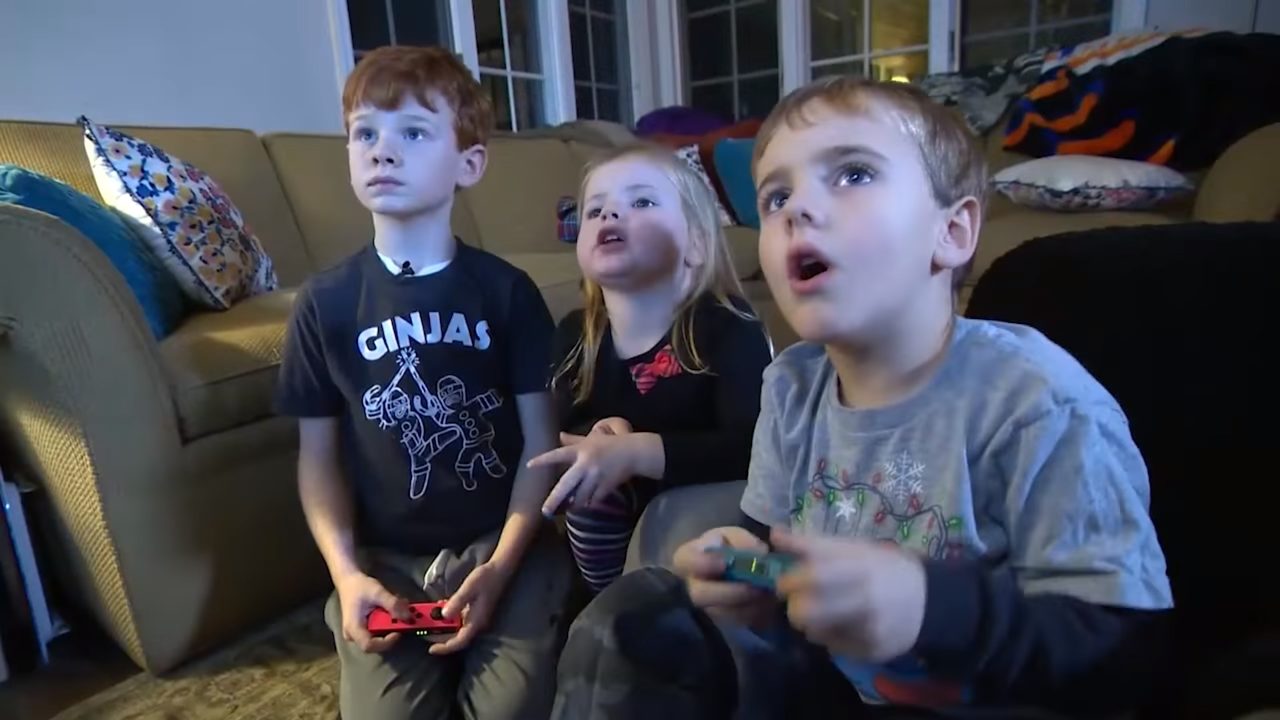Copyright 2019 by Channel 3000. All rights reserved. This material may not be published, broadcast, rewritten or redistributed.
More Headlines
MADISON, Wis. – Tyler Kurwicki is like many American teenagers – he spends some of his downtime playing video games. In fact, by some counts, more than 90% of children across the United States engage in some form of video games, whether it be on their phones, their iPads or their gaming system of choice.
His mom, Tiffany, does her best to keep him from going overboard with it. “I usually top him out at an hour a day, but I don’t let him play video games every day.” As a social worker herself, Tiffany Kurwicki is well-researched, and knows that too much of anything can be a bad thing.
“I think his counselor said that it was like cocaine for the brain,” says Tiffany Kurwicki, “so the brain supposedly acts the same way as if you were using illegal drugs.”
And in some people, with certain games, some research indicates the addiction may work in much the same way. Earlier this year, the World Health Organization added “gaming disorder” to its International Classification of Diseases.
The WHO called gaming addiction “a pattern of persistent or recurrent gaming behavior” so severe it “takes precedence over other life interests”. And the rise in video game popularity is evident from the amount of money spent on the games. Variety reported in May 2019 that revenue has climbed from $7.4 billion in 1999, to $131 billion in 2018, and some reports speculate the industry could make $300 billion within the next five years.
According to Recovery Village, 64% of the U.S. population now considers itself, “gamers.” The most likely to become addicted are, not surprisingly, males between the ages of 18-24.
C. Shawn Green, Ph.D., who has studied the impact that video games have on our brains at the University of Wisconsin-Madison, says he is often asked by parents if their child is developing such an addiction. Green, who isn’t afraid to speak of the benefits of the games, says too often parents are quick to assume their child is addicted.
“If they are just enjoying the time that they’re spending playing games then it’s unlikely to have any. Actually we wouldn’t consider it to be an addiction in that case,” says Green, “if there are negative outcomes, there are kind of real damage happening to someone’s life in terms of their academic success their social relationships, then there’s room to be concerned.”
For some people, too much of anything becomes a major problem, disrupting their lives in disastrous ways.
HiIlarie Cash started reStart in 2009, after spending 15 years as a therapist in the Pacific Northwest, she realized there was a need for those whose lives were under the control of video game technology, and more recently, their smartphones and the internet in general. Her first experience with a patient in need of recovery from a video game addiction started in 1994.
“He was a man of 25,” says Cash, “and he was addicted to a Dungeons and Dragons early user domain game. It was a ‘text-only’ game, but he was classically addicted to it.”
Since then, she realized that she and her co-founders of reStart could help many more on their 5-acre Washington property. The $550/day intensive withdrawal program for some addicts means a total change of lifestyle.
“First they need to be away from screens,” says Cash, “for a minimum of two months and then during that time we’re really building the foundations of health, so we’re focused on their physical health.”
Cash is quick to point out these aren’t your run-of-the-mill 13-year-olds like Tyler Kurwicki who like to play Minecraft for an hour per day in their parents’ basement.
“Academically we are working with teenagers and young adults and most of them are failing academically because the gaming has taken over their lives,” she says. “Socially they’re avoidant and not getting along with family. If they ever had friends or girlfriends, those folks that they might have been dating — that hasn’t worked out.”
So how can you keep your child from falling into such a trap? Green has at least two ways. For one, look at the entire picture of who your child really is.
“I certainly have parents who say, ‘Oh, my kid’s on their iPad all the time’ – and I say, ‘Well, OK, what are they doing?’ You need to know what they’re doing,” says Green, “Is it something you want them to be doing? Is it something that they can stop if they want to stop?”
Next, he says, don’t be afraid to not only play the games with your child, don’t be afraid to lose.
“It’s a really great way for parents to interact with the kids because kids like being better than their parents at stuff, right? Or to be able to explain things that their parents don’t know,” says Green, “I always suggest parents to play with their kids and just get over the frustration with the fact that they’re better than you at it”
Back at home, Tyler Kurwicki has a good grasp, even at his young age, that mom is keeping him on the right track.
“I understand what my mom says about the certain time limit,” says Tyler.
Tiffany Kurwicki wants make sure her son experiences more than what’s on the screen.
“I want him to have those moments,” says Tiffany, “but I want to make sure he’s also outside getting his hands dirty, learning real life skills, as opposed to pressing buttons on a controller.”
Get your weather forecast from people who actually live in your community. We update with short, easy-to-use video forecasts you can watch on your phone every day. Download the iOS or Android app here.
















